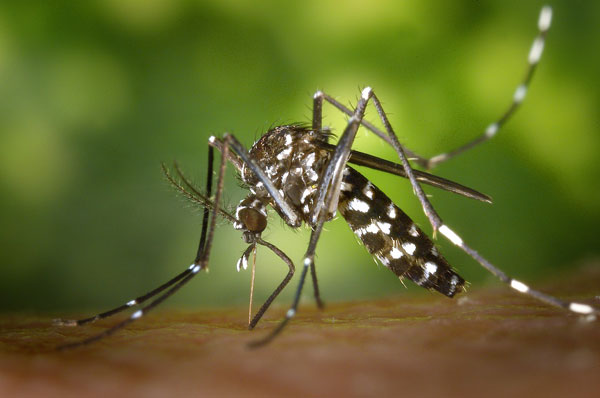Disease threats loom ahead of summer Olympic games

[Aedes Albopictus. Photo Credit to Pixabay]
France, the host of the 2024 Summer Olympic Games happening in July, has reported a 1260% increase in imported dengue cases compared to the same time frame as last year, says Euronews.
As of now, there have been no locally transmitted cases of the viral disease, which is primarily spread by the aedes albopictus mosquito, also known as the Asian tiger mosquito.
Despite this, experts warn of a looming risk: the potential for the Olympics to become a super-spreader event.
Dengue fever manifests with symptoms including high fever, painful headaches, acute pain behind eyes, muscle pain, vomiting, nausea, full-body rashes, and so on, according to Johns Hopkins Medicine.
If not detected early and treated, severe dengue has a fatality rate up to 20%.
A variant of dengue fever, dengue hemorrhagic fever can have a mortality rate up to 50% in young children.
The Asian tiger mosquito is not only a carrier of dengue fever but also other dangerous pathogens like the yellow fever virus, Chikungunya, and Zika virus.
Its global spread has accelerated due to increased international travel and global warming, expanding its reach into subtropical and tropical regions worldwide.
Expected to bring in 15 million people from all across the world, the Olympics may attract visitors from countries where dengue is rampant, including asymptomatic carriers of dengue, which make up a not-so-insignificant fraction of active cases.
Once bitten by an infected mosquito, asymptomatic individuals can unwittingly spread dengue, perpetuating the cycle of transmission.
Dengue can also be transferred between mosquitos from adult to offspring, meaning that mother mosquitos with dengue will transfer the disease through laying eggs.
The Greater Paris Regional Health Agency began a redoubled effort to combat the spread of the Asian tiger mosquito in May, as the French Ministry of Health has announced that over 80% of the departments of Metropolitan Paris have been "colonised" by the mosquito.
Health officials and entomologists worldwide caution that once established, the presence of aedes mosquitoes is notoriously difficult to eradicate.
Globally, dengue fever claims about 30,000 people annually.
The CDC reports that each year, up to 400 million people are infected by the virus.
Given these figures, an influx of 15 million people worldwide could turn out catastrophic for the Olympics and subsequently, Europe, but the French government is doing what it can to prevent spread.
However, concerns are compounded by recent reports of local dengue transmission in Paris last October, emphasizing the vulnerability of densely populated urban areas to mosquito-borne diseases.
Travellers to the Olympics are strongly advised to take measures to protect themselves, such as mosquito repellent that includes high levels of DEET, a strong recommendation by Dr. William Reisen from the School of Veterinary Medicine at the University of California, Davis.
As preparations for the 2024 Olympics continue, vigilance against dengue and other mosquito-borne illnesses remains a critical priority for public health officials and organizers alike.

- Moojin Hong / Grade 10
- Chadwick International School

![THE HERALD STUDENT REPORTERS [US]](/assets/images/logo_student_us.png)
![THE HERALD STUDENT REPORTERS [Canada]](/assets/images/logo_student_ca.png)
